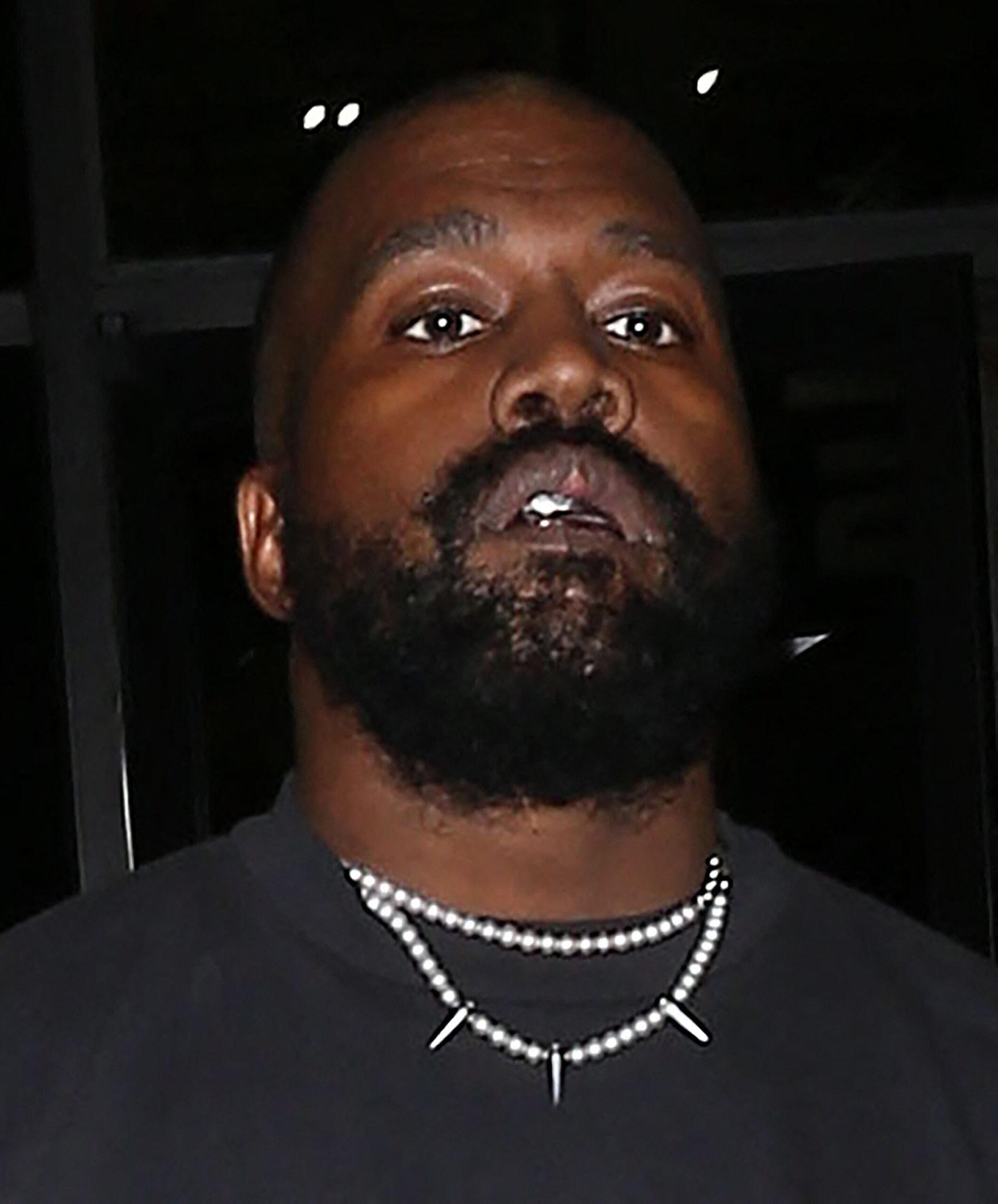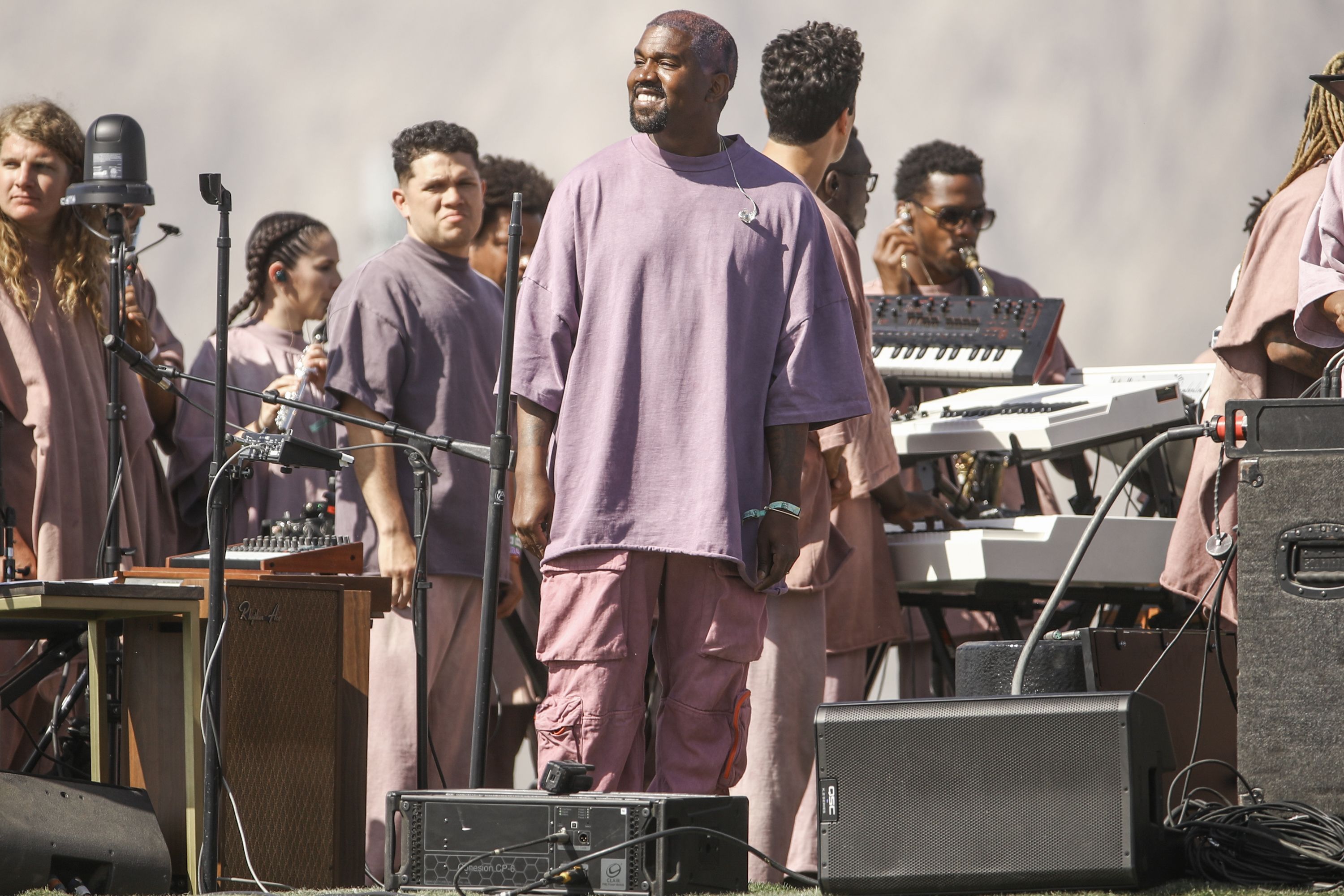In recent years, advancements in cloning technology and artificial intelligence have sparked debates about the ethical, social, and cultural implications of replicating human beings—or even their personas. The idea of a "Cloned Kanye" raises intriguing questions: Would this replica carry the same genius that propelled Kanye to fame? Could it replicate his unique ability to blend genres, challenge norms, and inspire millions? Or would it simply be a shadow of the original, lacking the depth and authenticity that make him who he is? These are just some of the questions we’ll delve into as we explore the possibilities surrounding Cloned Kanye. As we journey through this article, we’ll uncover the science behind cloning, examine Kanye’s biography and cultural contributions, and speculate on how a cloned version of him might influence music, fashion, and society at large. Whether you're a fan of Kanye’s work, intrigued by futuristic concepts, or simply curious about the intersection of technology and art, this article will provide a comprehensive look at the phenomenon of Cloned Kanye. Let’s dive in and discover what makes this topic so compelling.
Table of Contents
- The Life and Times of Kanye West: A Biography
- Personal Details and Bio Data of Kanye West
- What Is Cloning and How Does It Work?
- Cloning in Pop Culture: Why Does It Fascinate Us?
- What Are the Ethical Questions Surrounding Cloned Kanye?
- How Could Cloned Kanye Revolutionize the Music Industry?
- Cloned Kanye and the Future of Fashion: What’s Next?
- Frequently Asked Questions About Cloned Kanye
The Life and Times of Kanye West: A Biography
Kanye Omari West was born on June 8, 1977, in Atlanta, Georgia. Raised in a family deeply rooted in education and the arts, Kanye’s early exposure to creativity set the stage for his future success. His mother, Dr. Donda West, was an English professor and played a pivotal role in nurturing his love for literature and storytelling. Meanwhile, his father, Ray West, worked as a photojournalist and inspired Kanye’s visual sensibilities. Growing up, Kanye moved between Chicago and Atlanta, which exposed him to diverse musical influences that would later shape his eclectic style. Kanye began his career as a producer in the late 1990s, working behind the scenes for artists like Jay-Z and Alicia Keys. His breakthrough came with the release of his debut album, *The College Dropout*, in 2004. This album not only showcased his lyrical prowess but also introduced the world to his unique fusion of hip-hop, gospel, and soul. Over the years, Kanye has released critically acclaimed projects such as *Graduation*, *My Beautiful Dark Twisted Fantasy*, and *Yeezus*, each pushing the boundaries of what music can achieve. Beyond music, Kanye has made waves in fashion with his Yeezy brand, collaborating with Adidas to create some of the most sought-after sneakers in the world. Despite his immense success, Kanye’s journey has been marked by controversy and resilience. From his outspoken political views to his struggles with mental health, he has remained a polarizing yet undeniably influential figure. His ability to reinvent himself and challenge societal norms has cemented his status as a cultural icon. But what if there were two Kanyes? Or more? The idea of a cloned Kanye opens up endless possibilities—and challenges—for the worlds of art, science, and ethics.
Personal Details and Bio Data of Kanye West
| Full Name | Kanye Omari West |
|---|---|
| Date of Birth | June 8, 1977 |
| Place of Birth | Atlanta, Georgia, USA |
| Occupation | Rapper, Singer, Songwriter, Producer, Fashion Designer |
| Years Active | 1996–Present |
| Notable Works | The College Dropout, My Beautiful Dark Twisted Fantasy, Yeezy Brand |
| Awards | 24 Grammy Awards, Numerous Other Honors |
What Is Cloning and How Does It Work?
Cloning, in its simplest form, is the process of creating a genetically identical copy of an organism. While the concept may sound like something out of a sci-fi movie, cloning has been successfully achieved in various forms, from plants to animals. The most famous example is Dolly the sheep, the first mammal to be cloned from an adult somatic cell in 1996. But how does cloning work, and could it ever apply to humans—or even celebrities like Kanye West? The process begins with somatic cell nuclear transfer (SCNT), where the nucleus of a donor cell is inserted into an egg cell that has had its nucleus removed. This hybrid cell is then stimulated to divide, eventually developing into an embryo that shares the exact genetic makeup of the donor. While human cloning remains largely theoretical due to ethical and technical challenges, advancements in biotechnology suggest that it may one day become a reality. But what about replicating someone’s personality, talents, or cultural impact? That’s where artificial intelligence and machine learning come into play. By analyzing vast amounts of data—such as Kanye’s music, interviews, and public appearances—scientists could theoretically create a digital "clone" capable of mimicking his creative output.
Read also:Unveiling Lil Jeffs Age A Deep Dive Into The Life Of The Rising Star
Could Cloning Ever Capture the Essence of Cloned Kanye?
While cloning can replicate genetic material, capturing the essence of a person like Kanye West involves much more than DNA. His creativity, charisma, and ability to connect with audiences stem from a lifetime of experiences, emotions, and interactions. Could a cloned version of Kanye truly replicate these intangible qualities, or would it simply be a hollow imitation? These are the questions that keep scientists, ethicists, and fans alike intrigued by the idea of Cloned Kanye.
Cloning in Pop Culture: Why Does It Fascinate Us?
From movies like *Jurassic Park* to TV shows like *Black Mirror*, cloning has long captured the public’s imagination. Why are we so fascinated by the idea of replicating life? One reason is the allure of immortality. Cloning offers the tantalizing possibility of extending one’s legacy beyond the limits of mortality. For a figure like Kanye West, whose influence spans multiple industries, the idea of a cloned counterpart raises intriguing possibilities.
How Does Cloning Influence Our Perception of Identity?
Cloning forces us to confront fundamental questions about identity and individuality. If a cloned Kanye were to exist, would he be seen as a separate entity or merely an extension of the original? These philosophical dilemmas resonate deeply in pop culture, where themes of self-discovery and reinvention are prevalent. By exploring these ideas, we gain a deeper understanding of what makes us human—and what might make Cloned Kanye so compelling.
What Are the Ethical Questions Surrounding Cloned Kanye?
The concept of cloning raises significant ethical concerns, particularly when applied to humans. Would creating a cloned version of Kanye West violate his autonomy or dignity? And what rights would the clone have? These questions highlight the moral complexities of replicating a person, even for the sake of art or innovation.
Could Cloned Kanye Challenge Our Understanding of Creativity?
One of the most profound ethical dilemmas involves the nature of creativity itself. If a cloned Kanye were capable of producing groundbreaking music or designs, would it diminish the value of human ingenuity? Or would it enhance our appreciation for the limitless potential of technology?
How Could Cloned Kanye Revolutionize the Music Industry?
Imagine a world where a cloned Kanye collaborates with the original—or even surpasses him in artistic achievement. The implications for the music industry are staggering. From redefining artistic ownership to challenging traditional notions of authorship, Cloned Kanye could usher in a new era of creative possibilities.
Read also:King Von Autopsy Pic Uncovering The Truth Behind The Tragic Loss
Cloned Kanye and the Future of Fashion: What’s Next?
Kanye’s influence on fashion is undeniable, from his Yeezy line to his avant-garde runway shows. A cloned version of him could take this legacy to new heights, experimenting with cutting-edge designs and sustainable materials. But what impact would this have on the industry—and on Kanye’s original brand?
Frequently Asked Questions About Cloned Kanye
Is Cloning Humans Legal?
While cloning humans is technically possible, it is heavily restricted and largely illegal in most countries due to ethical concerns.
Could Cloned Kanye Replace the Original?
While a cloned Kanye might replicate certain traits, replacing the original would be nearly impossible, as much of Kanye’s appeal lies in his unique experiences and personality.
What Are the Risks of Cloning?
Cloning poses significant risks, including genetic abnormalities, ethical dilemmas, and societal implications that could disrupt our understanding of identity and individuality.
Conclusion
The idea of Cloned Kanye is more than just a thought experiment—it’s a lens through which we can examine the intersection of science, art, and ethics. Whether or not cloning becomes a reality, the discussions it inspires remind us of the boundless potential of human creativity. To learn more about the science of cloning, check out this resource from National Geographic.

